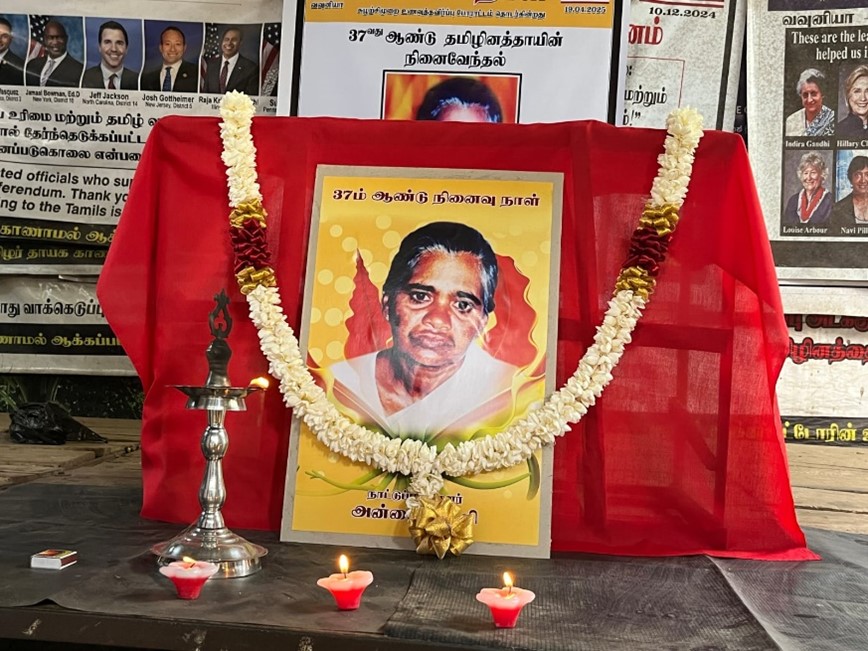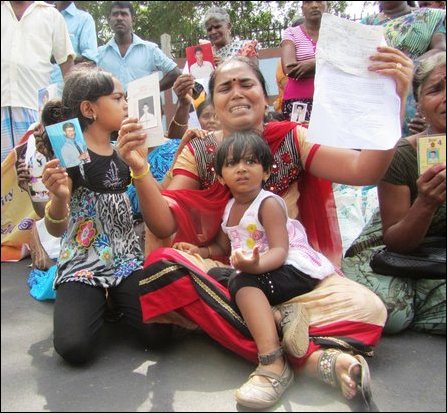Hundreds of families of those who disappeared in Sri Lanka gathered in front of the Jaffna Public Library to voice their grievances to the visiting United Nations Human Rights Commissioner Navi Pillay.
Sources reported that Navi Pillay who attended a meeting in Jaffna Library, was forced, by government officials, to leave through the back exit of the library, in what was seen as an attempt to nullify the voice of the protestors.
Protestors wielded placards that called on Pillay to intervene and make sure that that Tamils were resettled into their own lands, whilst brandishing pictures of missing loved ones.




